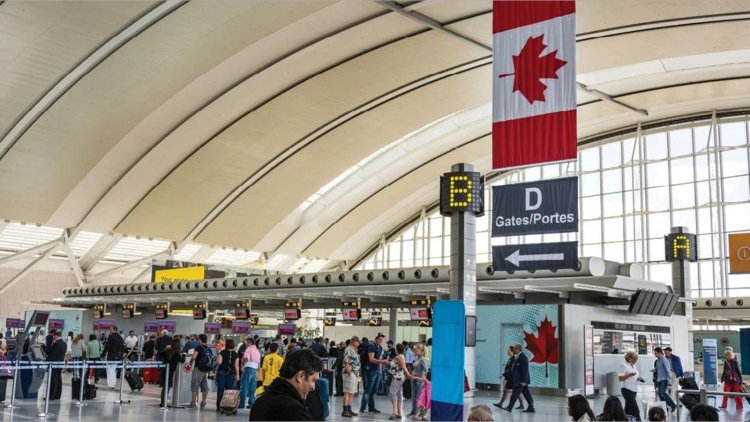Canada Govt Increases Cost Of Living Requirement For International Students
Starting January 1, 2024, the cost-of-living financial requirement for study permit applicants will be raised so that international students are financially prepared for life in Canada.

The government of Canada has announced that it is raising the cost-of-living financial requirement for international students applying for a study permit to better protect them financially while residing in the country.
In a statement, Canada's Immigration Ministry through Marc Miller, Minister of Immigration, Refugees and Citizenship, announced that starting January 1, 2024, the cost-of-living financial requirement for study permit applicants will be raised so that international students are financially prepared for life in Canada.
The Ministry added that going forward, the threshold will be adjusted each year when Statistics Canada updates the low-income cut-off (LICO).
LICO represents the minimum income necessary to ensure that an individual does not have to spend a greater than average portion of income on necessities.

Image of a Canada flag on a landscape view. /PIE NEWS
"The cost-of-living requirement for study permit applicants has not changed since the early 2000s, when it was set at CAN$10,000 (Ksh1.14 million) for a single applicant. As such, the financial requirement hasn’t kept up with the cost of living over time, resulting in students arriving in Canada only to learn that their funds aren’t adequate," the statement read in part.
For 2024, a single applicant will need to show they have CAN$20,635, which translates to Ksh2.4 million on current exchange rates. It is worth it to note that the Kenyan shilling is trading at Ksh113.91 against the Canadian Dollar.
The new amount will represent 75% of LICO, in addition to their first year of tuition and travel costs. This change will apply to new study permit applications received on or after January 1, 2024.
The increase is the latest in a series of policy changes demonstrating that the federal government is looking far more closely at Canada’s international student programme and how it operates.
The steeper financial requirement is designed to remedy a trend in which some students arrive in Canada believing they have enough money to support themselves given that they have met the $10,000 threshold –only to find that they do not. In those cases, students can be more vulnerable to shady landlords and exploitative employers as they struggle to make ends meet.
Minister Miller also provided updates on three temporary policies affecting international students:
- The waiver on the 20-hour-per-week limit for off-campus work will be extended to April 30, 2024, providing flexibility for students.
- Students starting a study program before September 1, 2024, can continue counting online study time towards a future post-graduation work permit, constituting less than 50% of the program of study.
- The temporary policy providing an additional 18-month work permit to post-graduation work permit holders expiring up to December 31, 2023, will not be extended further.
“International students provide significant cultural, social and economic benefits to their communities, but they have also faced challenges navigating life in Canada. We are revising the cost-of-living threshold so that international students understand the true cost of living here.
"This measure is key to their success in Canada. We are also exploring options to ensure that students find adequate housing. These long-overdue changes will protect international students from financially vulnerable situations and exploitation," stated Minister Miller.
The revised charges come amidst Canada's increasing cost of living which is leading to an increase in reverse migration, that is, immigrants opting to return to their country of origin.
The dream of making it big in Canada is turning into a battle for survival for many immigrants due to the high cost of living and rental shortages, as rising emigration numbers hint at newcomers being forced to turn their back on a country that they chose to make their adopted home.
Prime Minister Justin Trudeau has made immigration his main weapon to blunt Canada's big challenge of an ageing and slowing population, and it has also helped fuel economic growth, a matter which drove Canada's population up at its fastest clip in more than six decades this year, according to Statistics Canada.
Reuters reported that a reversal of that trend is gradually taking hold. In the first six months of 2023, some 42,000 individuals departed Canada, adding to 93,818 people who left in 2022 and 85,927 exits in 2021.
In May this year, Canada's immigration department issued a warning regarding false immigration programmes targeting Kenyans.
"Disinformation is circulating which suggests that special programs are welcoming Kenyan immigrants. This is false, and the immigration programs referenced do not exist.
"For accurate information on how to immigrate, visit http://Canada.ca/immigration," Immigration, Refugees and Citizenship Canada (IRCC) stated.
As of March 2023, there are now over 13,000 people of Kenyan origin who live in Canada. This number continues to grow each year due to more Kenyans moving to Canada to immigrate, work, and study.
Canada also offers many advantages, such as being a safe and politically stable country, a thriving economy, a highly developed healthcare system and an internationally recognized education system.







